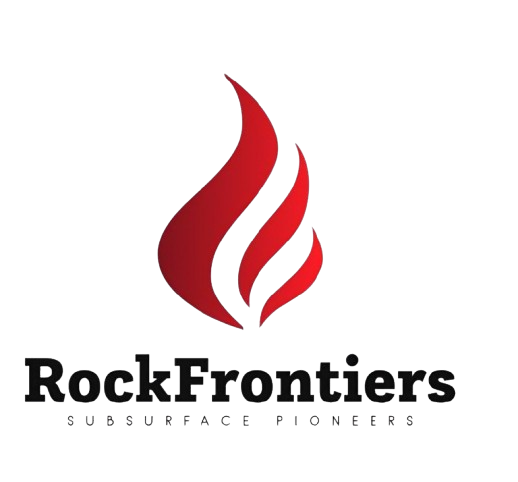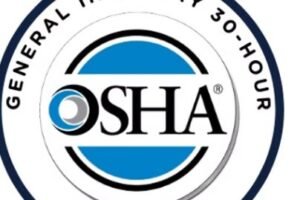🧾 Zero-Based Budgeting (ZBB) Training Course
📖 Course Description This course provides participants with a thorough understanding of Zero-Based Budgeting (ZBB), an advanced budgeting approach that requires every expense to be justified for each new period. Participants will gain the skills to implement ZBB in public …
Overview
📖 Course Description
This course provides participants with a thorough understanding of Zero-Based Budgeting (ZBB), an advanced budgeting approach that requires every expense to be justified for each new period. Participants will gain the skills to implement ZBB in public and private sector environments, link it to organizational strategy, manage cost drivers effectively, and engage stakeholders in a culture of accountability and performance.
✅ Learning Objectives
By the end of the course, participants will be able to:
-
Understand the philosophy and principles of Zero-Based Budgeting
-
Compare ZBB with traditional and incremental budgeting
-
Identify cost drivers and define decision units
-
Develop decision packages and justify expenditures
-
Integrate ZBB with performance management and strategy
-
Implement ZBB processes within ERP and planning systems
-
Monitor, evaluate, and revise budgets effectively
👥 Who Should Attend
-
Finance and Budgeting Managers
-
Accountants and Controllers
-
Cost and Management Accountants
-
Strategic Planning Professionals
-
Public Sector Finance Officers
-
Department Heads with Budget Responsibilities
-
Professionals involved in cost optimization and budget reform
🧩 Training Format
-
Instructor-led workshops
-
Group discussions and simulations
-
Practical exercises using budget templates
-
Real-world case studies (corporate & government)
-
Excel-based budgeting tools
-
Post-training implementation roadmap
📅 5-Day Agenda with Time Breaks
📆 Day 1: Foundations of Budgeting and ZBB Philosophy
| Time | Session Topic |
|---|---|
| 08:30 – 09:00 | Welcome & Course Objectives |
| 09:00 – 10:30 | Overview of Traditional vs. Zero-Based Budgeting |
| 10:30 – 10:45 | ☕ Coffee Break |
| 10:45 – 12:15 | ZBB Principles and History – Government & Private Sector |
| 12:15 – 13:15 | 🍽 Lunch |
| 13:15 – 14:45 | Advantages and Challenges of ZBB |
| 14:45 – 15:00 | ☕ Coffee Break |
| 15:00 – 16:30 | Identifying Cost Categories and Spending Areas |
📆 Day 2: ZBB Structure and Decision Units
| Time | Session Topic |
|---|---|
| 08:30 – 10:00 | Defining Decision Units and Budget Holders |
| 10:00 – 10:15 | ☕ Coffee Break |
| 10:15 – 12:15 | Creating Decision Packages – Structure & Justification |
| 12:15 – 13:15 | 🍽 Lunch |
| 13:15 – 14:45 | Cost Driver Identification and Analysis |
| 14:45 – 15:00 | ☕ Coffee Break |
| 15:00 – 16:30 | Setting Performance Targets and KPIs for Units |
📆 Day 3: Building and Prioritizing Decision Packages
| Time | Session Topic |
|---|---|
| 08:30 – 10:00 | Classifying Packages: Essential vs. Optional Spending |
| 10:00 – 10:15 | ☕ Coffee Break |
| 10:15 – 12:15 | Ranking and Prioritizing Budget Requests |
| 12:15 – 13:15 | 🍽 Lunch |
| 13:15 – 14:45 | Practical Workshop: Decision Package Development |
| 14:45 – 15:00 | ☕ Coffee Break |
| 15:00 – 16:30 | Internal Review and Approval Process |
📆 Day 4: Implementing ZBB in the Organization
| Time | Session Topic |
|---|---|
| 08:30 – 10:00 | Building a ZBB Implementation Roadmap |
| 10:00 – 10:15 | ☕ Coffee Break |
| 10:15 – 12:15 | Integration with ERP/Planning Software and Budgeting Systems |
| 12:15 – 13:15 | 🍽 Lunch |
| 13:15 – 14:45 | Role of Finance and Cross-functional Teams in ZBB |
| 14:45 – 15:00 | ☕ Coffee Break |
| 15:00 – 16:30 | Change Management and Communication Strategy |
📆 Day 5: Monitoring, Reporting and Case Studies
| Time | Session Topic |
|---|---|
| 08:30 – 10:00 | ZBB Monitoring and Performance Evaluation |
| 10:00 – 10:15 | ☕ Coffee Break |
| 10:15 – 12:15 | Case Studies – Successful ZBB Implementation Stories |
| 12:15 – 13:15 | 🍽 Lunch |
| 13:15 – 14:45 | Hands-On Final Group Exercise – Build a ZBB Framework |
| 14:45 – 15:00 | ☕ Coffee Break |
| 15:00 – 16:30 | Presentation, Feedback & Certificate Distribution |
🎓 Training Package Includes
-
Printed course material and templates
-
Excel-based decision package toolkit
-
Industry-specific case studies (Oil & Gas, Public Sector, FMCG)
-
ZBB implementation checklist
-
Certificate of Completion
Target audiences
- Reservoir Engineers, Geologists
You May Like
📘 Underbalanced Drilling (UBD) Techniques and Safety
🎯 Course Description: This intensive 5-day program focuses on Underbalanced Drilling (UBD) – an advanced technique used to drill wells where the hydrostatic pressure of the fluid is intentionally kept below formation pressure. Participants will learn how to implement UBD …
📘 IOSH Managing Safely
🎯 Course Description: A practical, 5-day program designed to help managers and supervisors learn how to manage safety and environmental responsibilities in their teams. Emphasis is placed on identifying risks, measuring performance, and leading safely using internationally recognized good practices. …
📘 IWCF Level 3 Well Control (Surface BOP)
🎯 Course Description: This is an intensive course aimed at drilling / well service personnel needing to gain supervisory competence in well control using surface blow‑out preventers (BOP) under the IWCF standard. It covers theory, hands‑on practice, and assessments for …
Advanced Specialist Petroleum GeoMechanics
📘 Course Description: This elite-level course is tailored for petroleum geomechanics specialists and senior subsurface professionals engaged in complex field development projects. It provides a deep technical dive into stress modeling, anisotropic rock behavior, coupled geomechanical-reservoir simulation, fault/fracture mechanics, and …
📘 OSHA 30‑Hour General Industry Safety and Health
🎯 Course Description: This 5‑day course provides in‐depth knowledge of workplace safety and health in general industry sectors. It covers OSHA regulations, hazard recognition, safety programs, and industry best practices. Participants will gain the expertise needed to maintain a safe …






